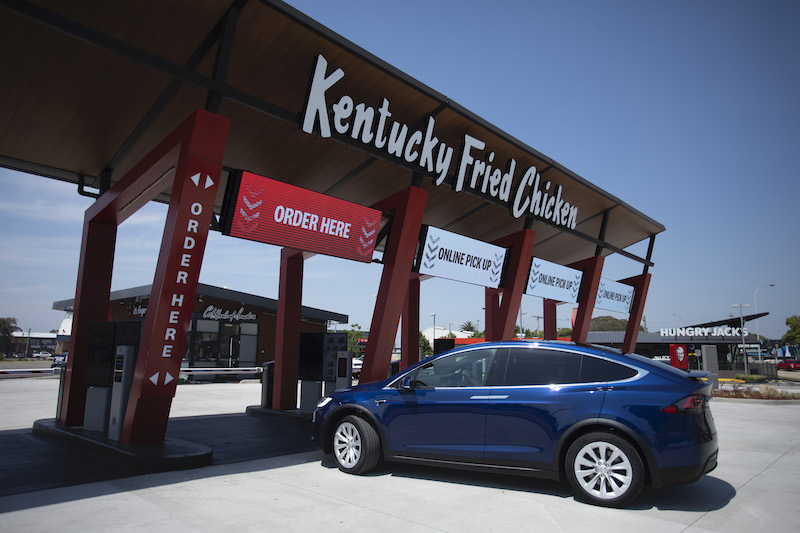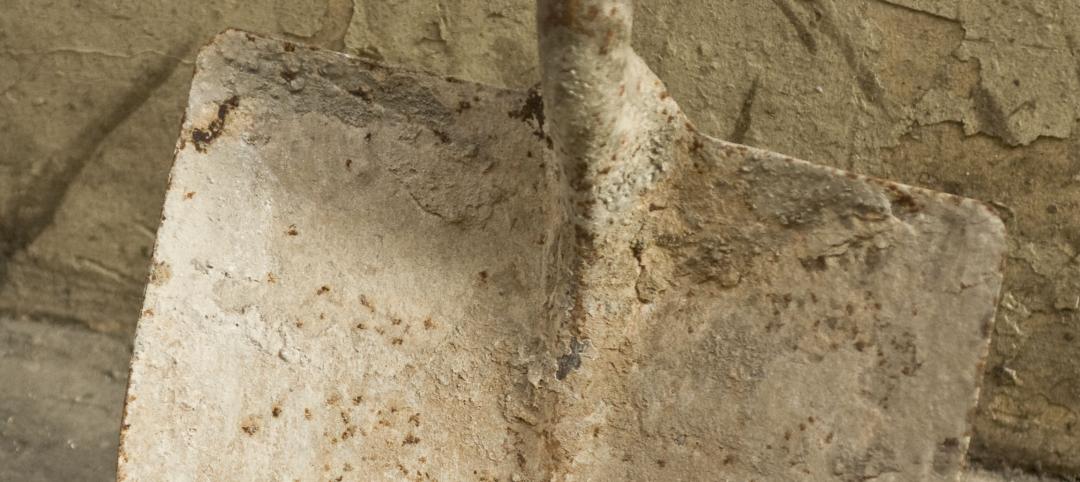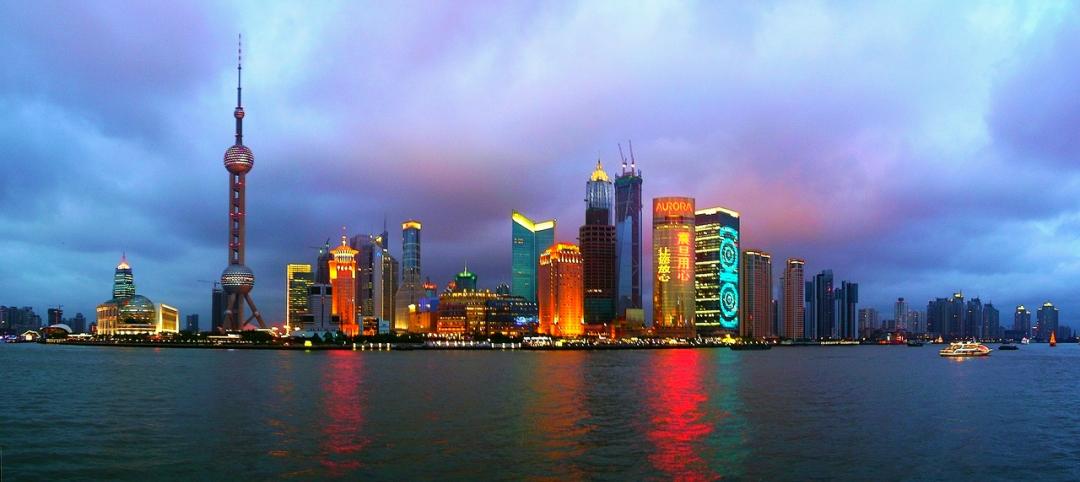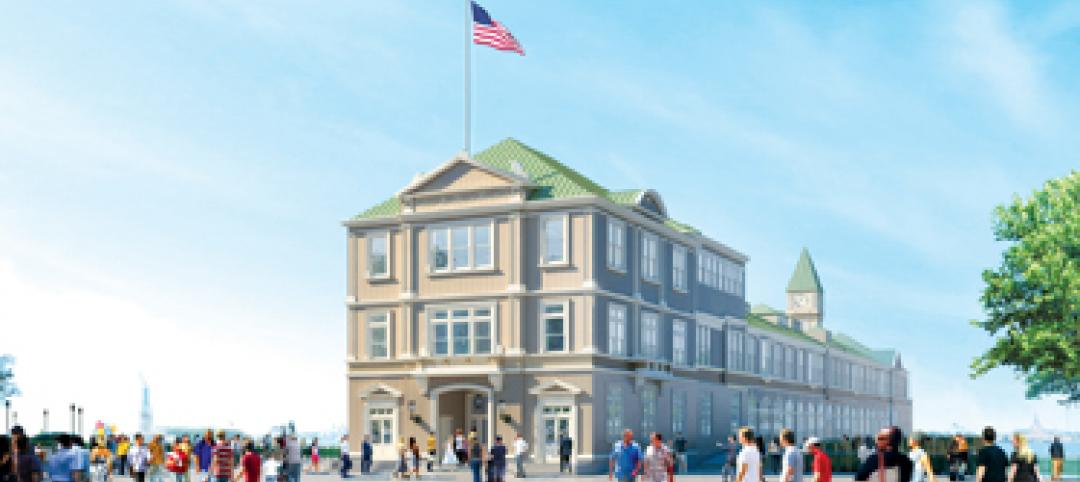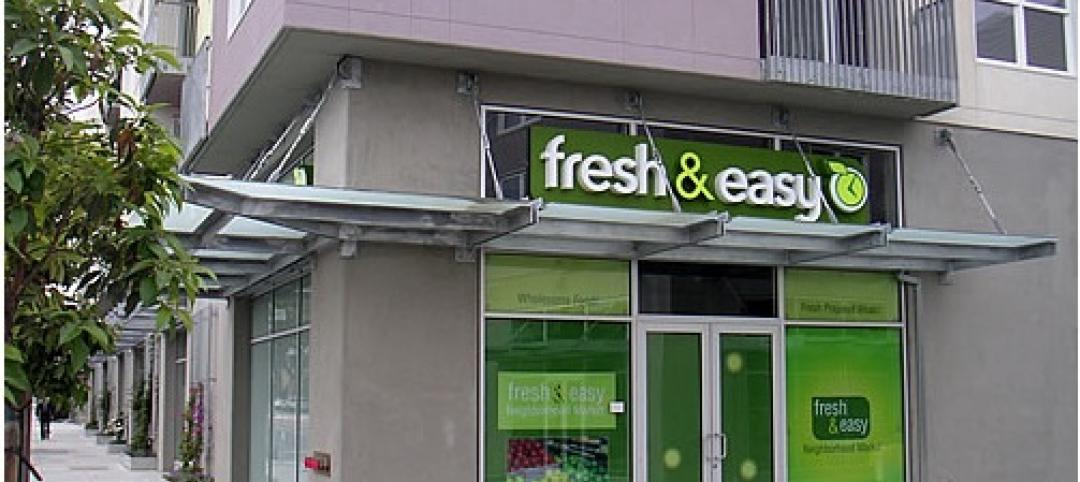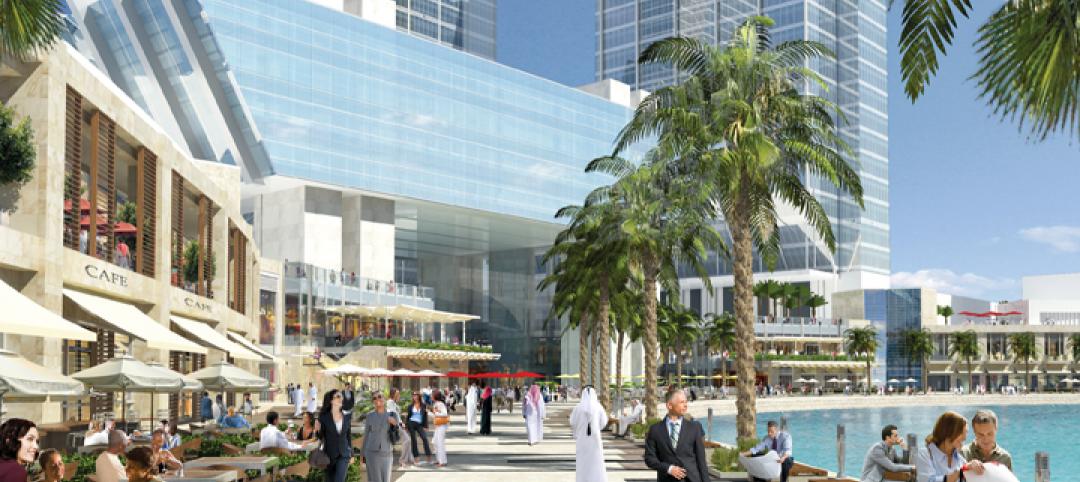As more customers begin to order food through online channels, a new KFC pilot project in Newcastle, Australia looks to create a more efficient operating model to keep up with this change in consumer behavior.
Designed by FRCH NELSON with KFC SOPAC, the drive-thru only KFC features five lanes, two set up for traditional on-the-spot drive-thru orders, and three that allow customers to order and pay for a meal through the brand’s app or website. For online orders, customers drive up to one of the designated lanes and enter a four-digit code generated by the app on a touchscreen. Once the code is entered, the online order is sent to the kitchen where it is freshly prepared.
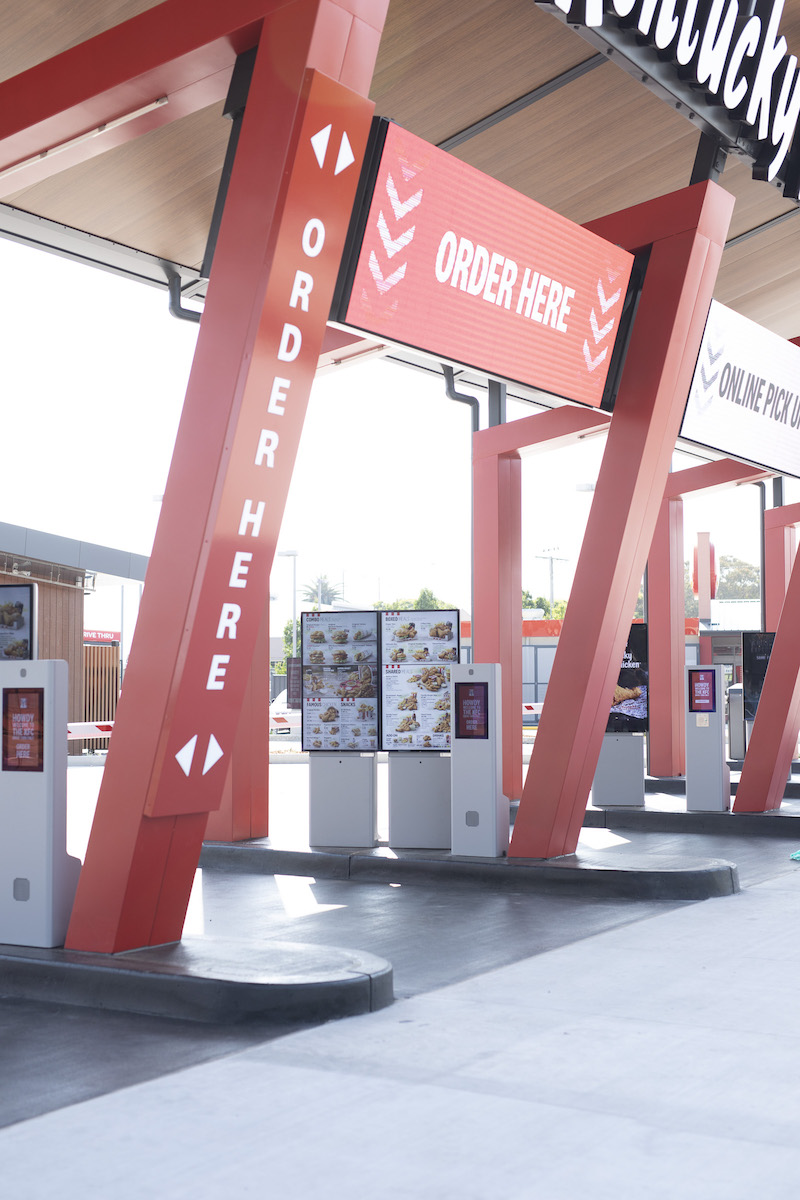
The goal of the design was to create a holistic drive-thru experience that leverages architecture, communication, service, and landscape. Without having the benefit of a public-facing interior, FRCH NELSON had to find other opportunities to display and celebrate the KFC brand on the building’s exterior, which leverages natural materials in conjunction with steel and glazing.
See Also: ‘The Whale’ will be an arctic attraction 185 miles north of the Arctic Circle
A large halo-lit Colonel Sanders layered atop the building’s wood-clad walls greets guests and the drive thru portal uses bold architecture to create a beacon for the experience. “With traditional restaurants, the building is the experience, but with this new concept it became a fixture – one element supporting the overall experience,” said Marty McCauley, Design Director at FRCH NELSON, in a release. “We had to utilize every exterior touchpoint from the landscaping, to the signage, to the architecture of the drive-thru portal, to create a holistic experience for guests.”
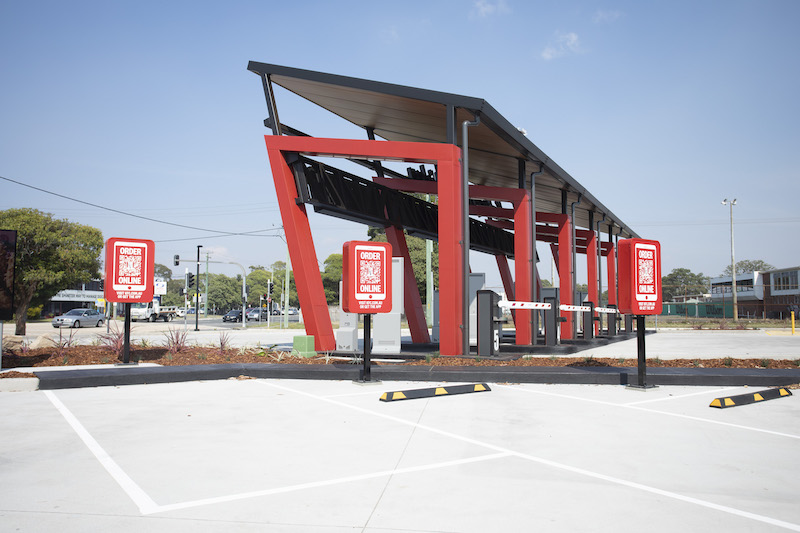
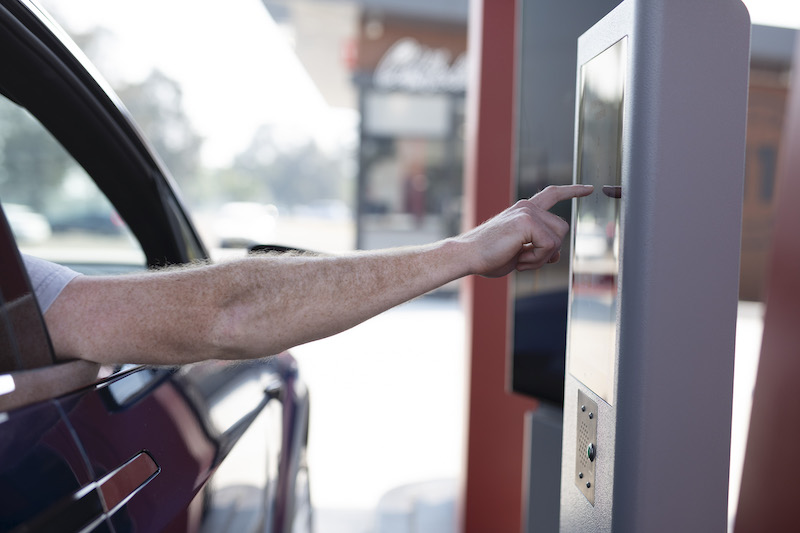
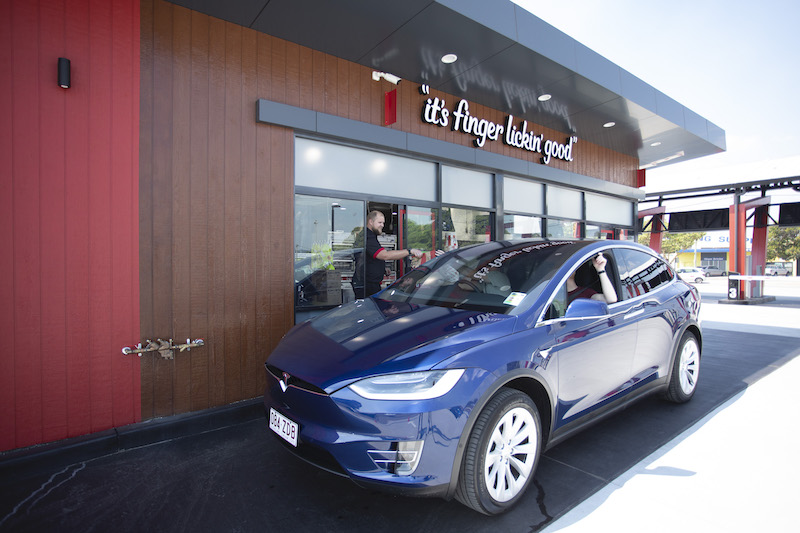
Related Stories
| Sep 23, 2011
Under 40 Leadership Summit
Building Design+Construction’s Under 40 Leadership Summit takes place October 26-28, 2011 Hotel at the Monteleone in New Orleans. Discounted hotel rate deadline: October 2, 2011.
| May 17, 2011
Redesigning, redefining the grocery shopping experience
The traditional 40,000- to 60,000-sf grocery store is disappearing and much of the change is happening in the city. Urban infill sites and mixed-use projects offer grocers a rare opportunity to repackage themselves into smaller, more efficient, and more convenient retail outlets. And the AEC community will have a hand in developing how these facilities will look and operate.
| Apr 12, 2011
Retail complex enjoys prime Abu Dhabi location
The Galleria at Sowwah Square in Abu Dhabi will be built in a prime location within Sowwah Island that also includes a five-star Four Seasons Hotel, the healthcare facility Cleveland Clinic Abu Dhabi, and nearly two million sf of Class A office space.
| Mar 30, 2011
Big-box giants downsize, open smaller, urban stores
As U.S. chain retailers absorb the lessons of the Great Recession, many big-box chains have started to shrink average store footprints to reflect the growing importance of multi-channel shopping, adapt to urban settings, and recognize the need to optimize portfolios. Wal-Mart, Target, Best Buy, and the Gap, among others, all have small concepts in the works or are adapting existing ones. These smaller store formats should allow the retailers to maximize profitability and open more stores in closer proximity to each other.
| Mar 22, 2011
Mayor Bloomberg unveils plans for New York City’s largest new affordable housing complex since the ’70s
Plans for Hunter’s Point South, the largest new affordable housing complex to be built in New York City since the 1970s, include new residences for 5,000 families, with more than 900 in this first phase. A development team consisting of Phipps Houses, Related Companies, and Monadnock Construction has been selected to build the residential portion of the first phase of the Queens waterfront complex, which includes two mixed-use buildings comprising more than 900 housing units and roughly 20,000 square feet of new retail space.
| Feb 23, 2011
Unprecedented green building dispute could cost developer $122.3 Million
A massive 4.5 million-sf expansion of the Carousel Center shopping complex in Syracuse, N.Y., a project called Destiny USA, allegedly failed to incorporate green building components that developers had promised the federal government—including LEED certification. As a result, the project could lose its tax-exempt status, which reportedly saved developer The Pyramid Cos. $120 million, and the firm could be penalized $2.3 million by the IRS.


